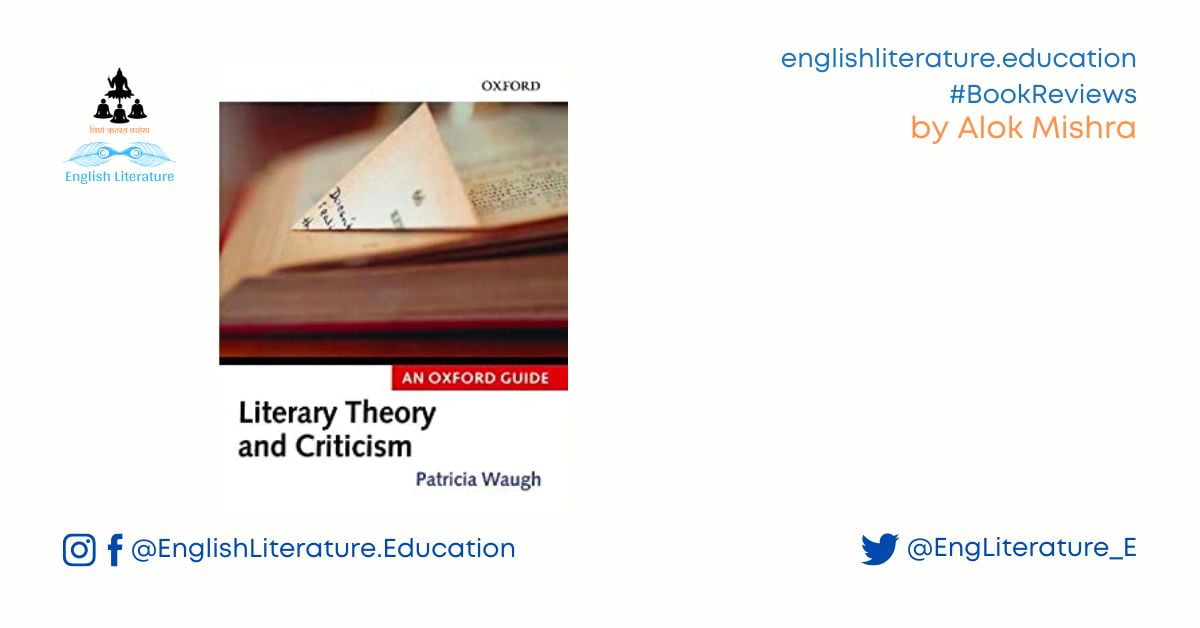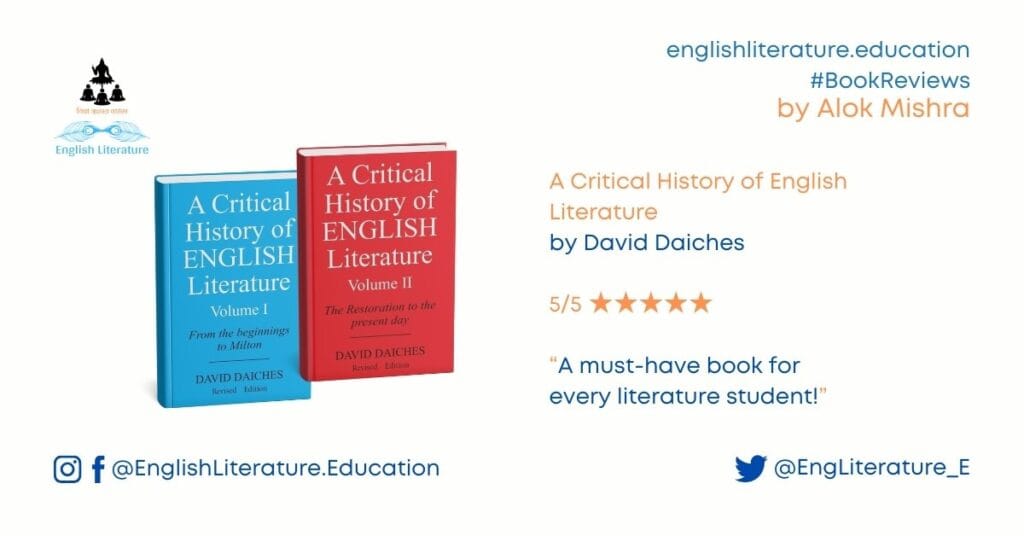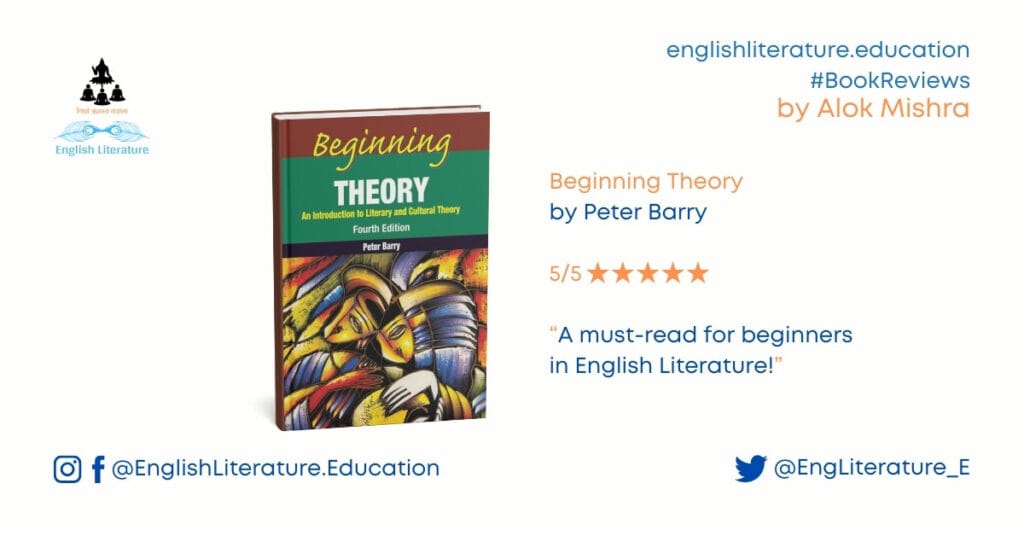Patricia Waugh, the editor of Literary Theory and Criticism, An Oxford Guide, has authored a few books and edited a few more. The areas of her expertise are feminism, modern, post-modern literature, and intellectual discourse on literary aspects. In India, her fame rests on the book I mentioned in the first line of this article – Literary Theory and Criticism, An Oxford Guide. Other prominent titles by her are A History of British Fiction: 1945 to Present, Feminine Fiction, and she edited a collection of academic-intellectual essays with David Fuller, The Arts and Science of Criticism. In this article, I will review Patricia Waugh’s Literary Theory and Criticism. If you are a student of English literature, this review will help you decide whether you need this book or not (to understand literary theory and criticism).
Introduction to the book:
There are 37 chapters (divided into four parts) in the book. The organisation of the chapters is not friendly (for beginners). While readers with a little more than elementary knowledge of various literary theories will love reading a few articles, in the beginning, beginners, in theory, might spend their time looking for the basics (and not finding anything they expect may irritate them). The nature of the essays or articles is scholarly, academic and intellectual. Contributors have literary backgrounds, impressive affiliations and expertise in rotating the wheel of literary wisdom. Do you want it short? This book is ideal for readers who are not ‘beginning theory’. The students of literature who want to understand the basics should put this book aside and pick up something straightforward and easy to understand. Do you need suggestions?
Read this article: Best books to study literary theory and criticism.
Utility of the book:
Literary Theory and Criticism, An Oxford Guide is a voluminous book. It has almost 1,100 pages. Readers who have completed a BA in English literature and learnt something about literary theories can use this book to extend the width of their understanding of the same. This book does not offer the a-b-c-d of literary theory and criticism. It supplies the readers with various perspectives on different theories, concepts and ideas. For example, I will discuss the article by Patricia Waugh – Value: criticism, canons, and evaluation. In this article, the author has tried to provide the readers with opinions on value judgement in literary criticism (and other aspects). However, the arguments by Patricia are beyond the reach of any beginner. Take a look:
“This chapter will therefore consider the relationship between aesthetic value and canonicity by drawing on both philosophical aesthetics and the more historicist and politicized insights of contemporary literary criticism.”
The prerequisite to reading this book is first-hand knowledge of concepts like value judgement, canonicity, aesthetic value, historicism, and the basics of politics of literature. And I doubt any elementary student of literary theory comes with expectations to grasp these over-the-top arguments.
The chapter I discussed and other chapters in the book perfectly match the needs of those who have acquired some understanding of the basic concepts of literary theory. Students, research scholars, teachers and instructors can extract many things from this book to widen their knowledge. As I mentioned earlier, Patricia’s book does not offer the a-b-c-d of the subject; it takes things one step further and discusses the ramifications, implications, impacts and utility of literary theories (in a historical manner). Beginners in literary theory should read any other book and grasp the basics before picking it.
Options before and after this book:
I am a fan of the book Beginning Theory by Peter Barry! I always recommend this book to those who want to learn literary theory from the beginning. It helps students rise from level zero to a level where they can read other books (and learn how to decode literary jargon and intellectual shifting of goalposts). So, including Peter Barry’s famous work, these are a few good books for early studies in theory:
- Beginning Theory by Peter Barry (click to buy from Amazon)
- Literary Theory: A Complete Introduction by Sara Upstone (click to buy)
- Literary Theory: The Basics by Hans Bertens (click to get a copy now)
For those who are ready to read Patricia’s book, here are a few more titles to consider:
- Literary Theory and Criticism, ed Patricia Waugh (click to get a copy)
- Literary Theory – A Reintroduction by David Ayers (get a copy now)
- Literary Theory: An Anthology (Blackwell Anthologies), ed Julie Rivkin (click here to get it from Amazon)
These are the titles I advise reading. Readers can pick accordingly (or try from both lists). I hope these books add to your intellect. You can suggest more titles, tell me your ideas or help me improve by leaving your feedback in the comments section below. Thank you in advance!
By Alok Mishra for the English Literature Education platform
Read more:
If you are a professor, research scholar or student who wishes to help students understand literature better, we invite you to join our platform as a contributor. Contact us by writing an email to [email protected]
Literary Theory and Criticism, An Oxford Guide by Patricia Waugh – Book Review and Analysis
- Narrative
- Content & Analysis
- Themes & Issues
- ELE Final Impression
Summary
Literary Theory and Criticism, An Oxford Guide by Patricia Waugh is a book for senior students of literary theory. It does not deal with different theories directly. Many scholars have offered their opinions on various aspects of literary theories from the ancient to contemporary ones.




2 Comments. Leave new
Thanks for this wonderful review of Patricia Waugh’s Literary Criticism book. I would rather buy Peter Barry because I am a beginner. I will read this book later.
Very well-written review! I agree that Waugh’s book is for those who have a basic idea of literary theory already. Once you know the basics, this book will help you a lot.